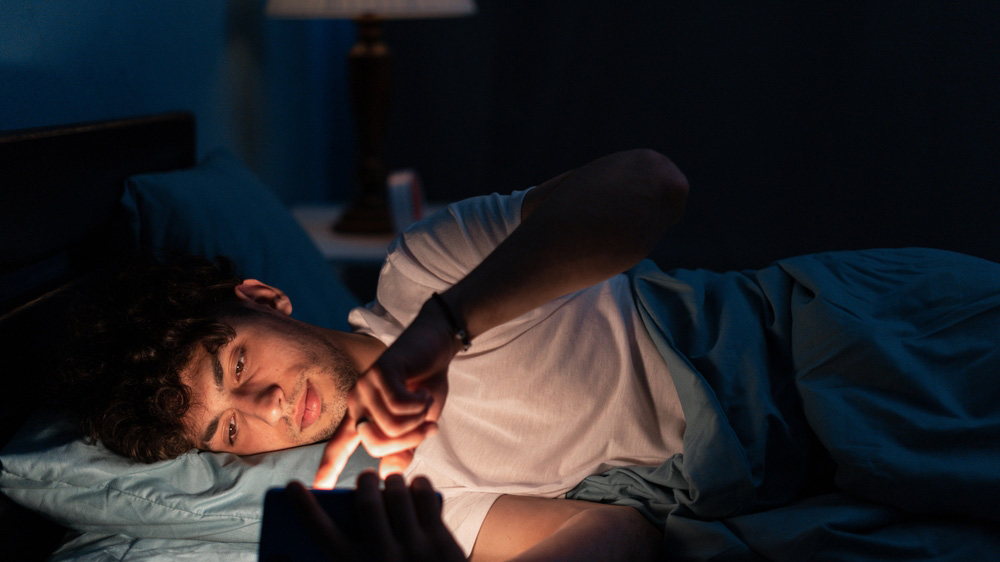The tumultuous impacts for the screens on sleep is a hot topic in our hyper-connected world. Whether it’s smartphones, tablets, or computers, these omnipresent tools are disrupting our nights—sometimes at the expense of our health. But between proven drawbacks and accessible solutions, the picture isn’t entirely bleak. Let’s explore the effects of technology on sleep and how to make the best of it to protect our nights.
Blue Light: A Disruptor of Our Biological Clock
The blue light emitted by LED screens is one of the main culprits behind sleep disturbances. It disrupts our circadian rhythm—the internal cycle that regulates sleep and wakefulness—by inhibiting the production of melatonin, the sleep hormone. Even low exposure, such as from a smartphone, can delay sleep onset and shift the body’s internal clock. Research has shown that prolonged evening screen exposure significantly reduces both sleep quality and duration. Chronobiology studies even label this light as “chronotoxic” due to its harmful effects.
Modern Habits That Eat Away at Our Nights
Today, 90% of French adults use electronic devices in the evening, and more than a third bring them to bed. Checking a smartphone just before sleeping has become routine, but alerts, notifications, and nighttime interactions often disrupt deep sleep. Even worse, among teenagers, this hyperconnectivity creates a sleep debt, exacerbated by the pressure to stay reachable or active on social media late into the night.
The Special Case of Younger Generations
Children and teenagers—whose biological rhythms are already delicate—are particularly affected. Nearly 30% of ninth-grade students go to bed after 11 PM on school nights, often using a screen in bed. These habits not only shorten their sleep duration but also negatively impact mental health, increasing the risks of stress, anxiety, and even depression.
When Technology Becomes a Sleep Ally
Ironically, the same technology that disrupts sleep can also help restore it. Apps like Offtime or AppBlock can restrict screen access during pre-set hours. Other tools, such as sunrise alarm clocks or blue-light-blocking glasses, help mitigate the harmful effects of screen exposure. Many smartphones now feature “night mode”, which adjusts light wavelengths to reduce melatonin disruption.
Better Habits to Protect Sleep
Fortunately, simple solutions can minimize the impact of screens on sleep. Here are some practical tips:
✔ Set a digital curfew: Turn off screens at least an hour before bed. Use this time for relaxing activities like reading or meditation.
✔ Create a screen-free bedroom: Ban smartphones, tablets, and computers from your sleeping space to foster a calm, sleep-friendly environment.
✔ Opt for alternative activities: Try relaxing music, podcasts, or breathing exercises instead of screen time before bed.
Conclusion: Finding the Right Balance
The impact of screens on sleep is undeniable, but there’s no need for fearmongering. By adopting more mindful habits and leveraging technology in beneficial ways, we can protect our sleep quality while still enjoying modern innovations. So, are you ready to swap late-night scrolling for a truly restorative sleep?
Sources :
- Sleep Foundation : Research on blue light and sleep cycles.
- Mayo Clinic : Effects of screen time on melatonin production.
- Harvard Health : Studies on technology and circadian rhythms.
- National Institute of Health : Chronobiology and light exposure.
- Stanford Medicine : Research on blue light and internal clocks.


